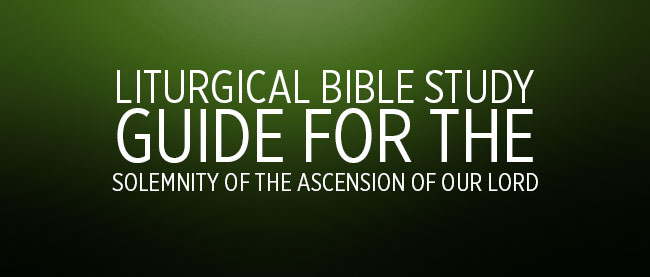Introduction
The revelation we celebrate on this day is that the direct experience of God revealed to men and women in Jesus of Nazareth continues to be experienced when the Body of Christ, the Church, gathers in witness, love and mission. Jesus brought power and hope to people. As He talked, healed, and loved them, they felt the direct presence of God. To be in the company of Jesus was to be in the company of God. Jesus appeared to His disciples after His resurrection. Those appearances were more than their seeing a vision or acknowledging that death could not destroy the Lord. In His appearances Jesus told His disciples that the faithful would continue to experience His presence even though they could no longer see Him. The Holy Spirit would make them aware and sensitive to that presence in the Eucharist. They would feel the same healing power freeing them from their enslavement to sin and guilt. Their vision of life would be enlarged as they grew in their covenant relationship with God.
To say “My life has significance because I am a child of God called to carry out His will in my life” is to make a statement that opens one’s life to new power and possibilities. Experiencing Jesus the Christ, in other words, was not to cease with the death of Jesus or with the last of His resurrection appearances. The experience would continue among the faithful. The power and presence of Christ are eternal experiences, not limited to time and space. The presence of Christ is as much our experience as it was the experience of the disciples. Christ “reigns” eternally with God, the creative power who calls us into being. As we say in the Creed “… He ascended into heaven and is seated at the right hand of the Father.”
1st Reading – Acts 1:1-11
Acts has been called “The Gospel of Luke, Volume 2” in that it takes over from where St. Luke stopped when writing his gospel with the ascension forming the hinge point. St. Luke, an educated man, a physician by profession, was meticulous and orderly. He sets out in Acts, under the inspiration of the Holy Spirit to prove the truth of the Apostles’ teaching and show how rapidly that teaching spread. It recounts the Church’s expansion which, particularly among the Gentiles, was marked by miracles; thus bearing out what our Lord had foretold: “You shall receive power when the Holy Spirit has come upon you; and you shall be my witnesses in Jerusalem and all Judea and Samaria and to the ends of the earth” (Acts 1:8). Today’s reading, which documents Jesus’ ascension, records Jesus’ last words to His disciples which includes this foretelling of the expansion of His Church.
2nd Reading – Ephesians 1:17-23
Toward the end of his second missionary journey (in the year 52) Saint Paul stayed for a while in Ephesus (Acts 18:19ff), one of the great cities of Asia Minor, where he preached and founded the church to which this letter is addressed. Shortly after this, a distinguished personality, Apollos, appeared in Ephesus; he received instruction from Aquila and his wife Priscilla, two disciples of Paul (Acts 18:24-26) and he, in turn, prepared the ground for Paul’s preaching on his third missionary journey (54-56). Paul’s visit was not without incident (Acts 19-20): he was forced to leave the city because of an uproar caused by Demetrius the silversmith. Paul did not forget the Ephesians, however, and, from Rome, he wrote them this letter. Paul’s main purpose in writing seems to be to explore the great mystery of the redemption, of which Christ Himself is the cornerstone, the foundation of the entire spiritual building into whom all Christians should be built. What we hear described in today’s reading is Jesus’ position in heaven after the ascension.
Gospel – Matthew 28:16-20
Commentators have said that this brief ending (this is the closing verses of Matthew’s gospel) is so rich that it would be hard to say more or greater things in the same number of words. It has been called an anticipated parousia, a partial fulfillment of Daniel’s vision of the Son of Man (Daniel 7 & 8). Its genre combines elements of an Old Testament enthronement pattern with an apostolic commissioning.


